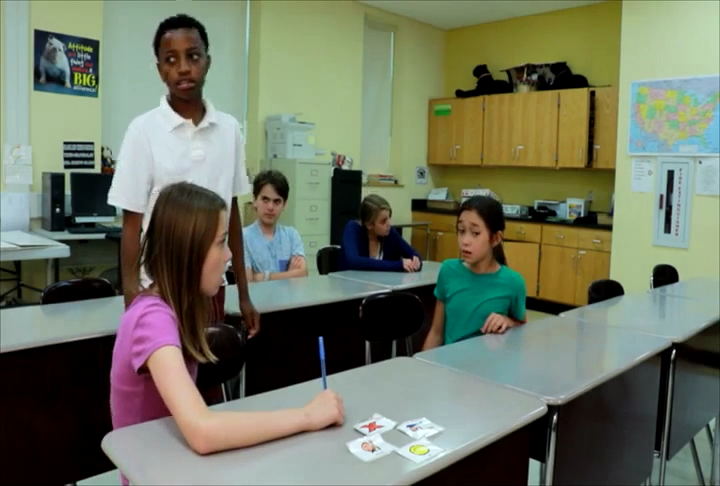
Introduction
When problems arise, it’s easy for students to become upset or react impulsively. Teaching students how to handle difficult situations calmly and thoughtfully is crucial for their development. This blog post will explore the importance of staying calm to solve problems and provide educators with a no-prep activity, discussion questions, and related skills to help students in special education better manage their emotions and make good decisions.
No-Prep Activity
This simple, no-prep activity can help students practice staying calm when faced with a problem. Begin by presenting a hypothetical situation to the class. For example, two students want to use the same computer at the same time. Ask the students to imagine themselves in the scenario and then follow these steps:
- Press pause: Encourage students to take a moment before reacting. This pause allows them to collect their thoughts and avoid impulsive actions.
- Calm down: Ask students to take deep breaths or count to ten, helping them to release any tension or frustration.
- Pay attention to others: Remind students to consider the feelings and needs of others involved in the situation.
- Find a solution: Have students brainstorm and discuss potential solutions to the problem, keeping in mind the feelings and needs of everyone involved.
Repeat the activity with different scenarios to help students practice staying calm and making thoughtful decisions in various situations.
Discussion Questions
- Why is it important to stay calm when faced with a problem?
- How can taking a pause help us make better decisions?
- What are some strategies you can use to calm down when you’re feeling upset or angry?
- How can considering the feelings and needs of others help us find better solutions to problems?
- Can you think of a time when staying calm helped you solve a problem? What happened?
Related Skills
Staying calm to solve problems is just one aspect of social-emotional learning. Other related skills that can benefit students in special education include:
- Empathy: Understanding and sharing the feelings of others.
- Active listening: Giving full attention to the speaker and responding appropriately.
- Conflict resolution: Using effective communication and problem-solving skills to resolve disagreements.
- Self-awareness: Recognizing one’s own emotions and understanding how they influence behavior.
- Self-regulation: Managing emotions and behaviors in a healthy and adaptive manner.
Next Steps
Now that you’re familiar with the importance of staying calm to solve problems and have a no-prep activity to try with your students, take the next step in enhancing your social-emotional learning toolkit. Sign up for free samples of skill-based activities and resources at Everyday Speech. These materials can help you further support your students in developing crucial social-emotional skills for success in and out of the classroom.

